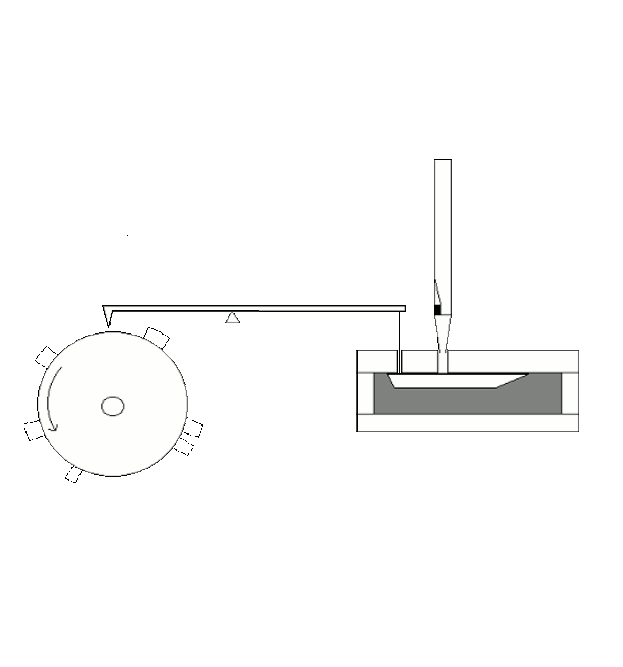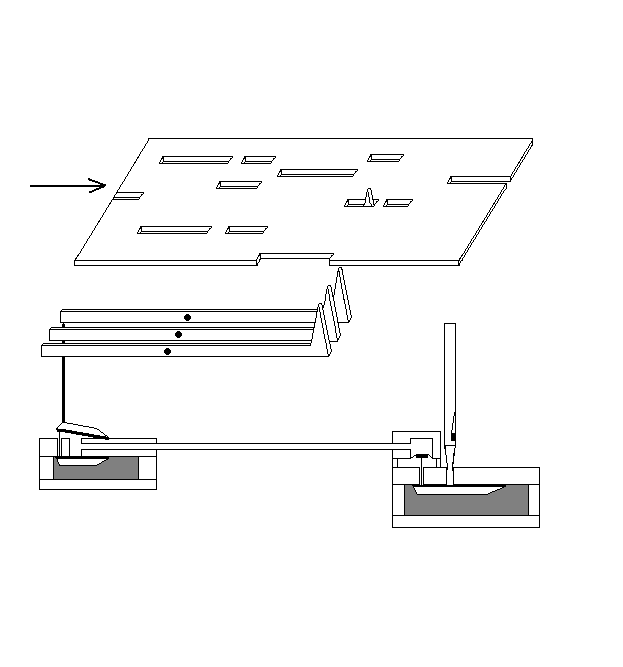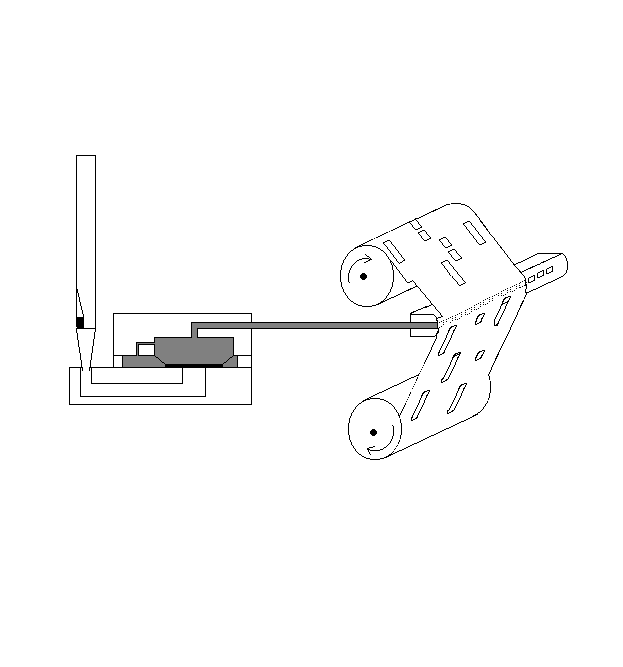
BARREL ORGAN
The music is noted with pins fixed on a large wood cylinder.

MECHANICAL ORGAN
The music cardboard is punched with holes. A lever comes in contact with the cardboard and “detect” the holes.

PNEUMATIC ORGAN
The holes on paper rolls or folded cardboards open or close the tracker bar openings which activate the corresponding pipes .
